Filter by
# Debug Box
/var/www/htdocs/pustaka-digital/lib/SearchEngine/SearchBiblioEngine.php:688 "Search Engine Debug 🔎 🪲"
Engine Type ⚙️: "SLiMS\SearchEngine\SearchBiblioEngine"
SQL ⚙️: array:2 [ "count" => "select count(sb.biblio_id) from search_biblio as sb where sb.opac_hide=0 and (sb.call_number LIKE :callnumber)" "query" => "select sb.biblio_id, sb.title, sb.author, sb.topic, sb.image, sb.isbn_issn, sb.publisher, sb.publish_place, sb.publish_year, sb.labels, sb.input_date, sb.edition, sb.collation, sb.series_title, sb.call_number from search_biblio as sb where sb.opac_hide=0 and (sb.call_number LIKE :callnumber) order by sb.last_update desc limit 10 offset 60" ]
Bind Value ⚒️: array:1 [ ":callnumber" => "9%" ]
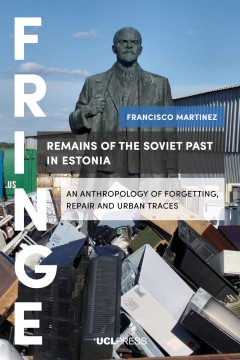
Remains of the Soviet past in Estonia : an anthropology of forgetting, repair…
What happens to legacies that do not find any continuation? In Estonia, a new generation that does not remember the socialist era and is open to global influences has grown up. As a result, the impact of the Soviet memory in people’s conventional values is losing its effective power, opening new opportunities for repair and revaluation of the past. Francisco Martinez brings together a numb…
- Edition
- -
- ISBN/ISSN
- 9781787353534
- Collation
- xix, 255 p. ill;
- Series Title
- -
- Call Number
- 974.98 REM F
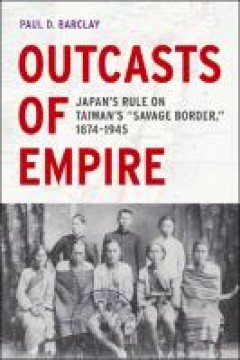
Outcasts of empire : japan's rule on taiwan's "savage border," 1874-1945
"Outcasts of Empire unveils the causes and consequences of capitalism’s failure to “batter down all Chinese walls” in modern Taiwan. Adopting micro- and macrohistorical perspectives, Paul D. Barclay argues that the interpreters, chiefs, and trading-post operators who mediated state-society relations on Taiwan’s “savage border” during successive Qing and Japanese regimes rose to prom…
- Edition
- edision 26
- ISBN/ISSN
- 9780520968806
- Collation
- xvii. ;ill. :301. p
- Series Title
- -
- Call Number
- 951.24904. OUT p

The responsibility of intellectuals : reflections by Noam Chomsky and others …
With the publication of ‘The Responsibility of Intellectuals’ half a century ago, Noam Chomsky burst onto the US political scene as a leading critic of the war in Vietnam. Privilege, he argues, brings with it the responsibility to tell the truth and expose lies, but our intellectual culture only pays lip-service to this ideal. The essay has been described as ‘the single most influential p…
- Edition
- -
- ISBN/ISSN
- 9781787355514
- Collation
- x, 138 p. ill;
- Series Title
- -
- Call Number
- 973.91 RES N

Bronze Age Maritime and Warrior Dynamics in Island East Asia
Recent interdisciplinary studies, combining scientific techniques such as ancient DNA analysis with humanistic re-evaluations of the transcultural value of bronze, have presented archaeologists with a fresh view of the Bronze Age in Europe. The new research emphasises long-distance connectivities and political decentralisation. 'Bronzisation' is discussed as a type of proto-globalisation. In th…
- Edition
- -
- ISBN/ISSN
- 9781108982955
- Collation
- 82 p ; ill
- Series Title
- -
- Call Number
- 959 BRO M

The Brothers Grimm and the Making of German Nationalism
In the first comprehensive English-language portrait of Jacob and Wilhelm Grimm as political thinkers and actors, Jakob Norberg reveals how history's two most famous folklorists envisioned the role of literary and linguistic scholars in defining national identity. Convinced of the political relevance of their folk tale collections and grammatical studies, the Brothers Grimm argued that they cou…
- Edition
- -
- ISBN/ISSN
- 9781009063890
- Collation
- viii, 268 p
- Series Title
- -
- Call Number
- 943.070922 BRO J
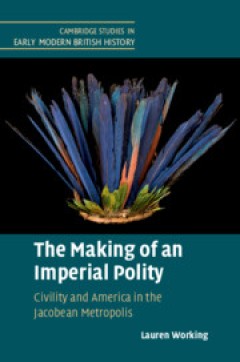
The Making of an Imperial Polity : Civility and America in the Jacobean Metro…
Bringing to life the interaction between America, its peoples, and metropolitan gentlemen in early seventeenth-century England, this book argues that colonization did not just operate on the peripheries of the political realm, and confronts the entangled histories of colonialism and domestic status and governance. The Jacobean era is reframed as a definitive moment in which the civil self-prese…
- Edition
- -
- ISBN/ISSN
- 9781108625227
- Collation
- xiv, 270 p ; ill
- Series Title
- -
- Call Number
- 970.02 MAK L
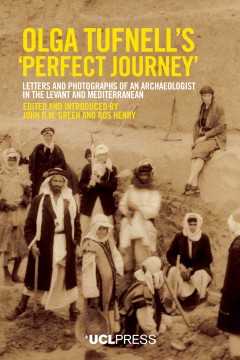
Olga Tufnell's 'perfect journey' : letters and photographs of an archaeologis…
Olga Tufnell (1905–85) was a British archaeologist working in Egypt, Cyprus and Palestine in the 1920s and 1930s, a period often described as a golden age of archaeological discovery. For the first time, this book presents Olga’s account of her experiences in her own words. Based largely on letters home, the text is accompanied by dozens of photographs that shed light on personal experience…
- Edition
- -
- ISBN/ISSN
- 9781787359062
- Collation
- xxxiv, 414 p. ill;
- Series Title
- -
- Call Number
- 956.0090909 OLG J
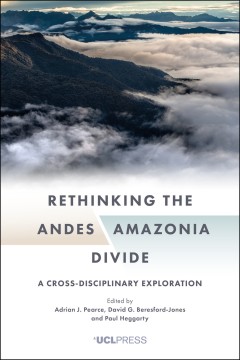
Rethinking the Andes-Amazonia divide : a cross disciplinary exploration
Nowhere on Earth is there an ecological transformation so swift and so extreme as between the snow-line of the high Andes and the tropical rainforest of Amazonia. The different disciplines that research the human past in South America have long tended to treat these two great subzones of the continent as self-contained enough to be taken independently of each other. Objections have repeatedly b…
- Edition
- -
- ISBN/ISSN
- 9781787357358
- Collation
- xxviii, 386 p. ill;
- Series Title
- -
- Call Number
- 980 RET A
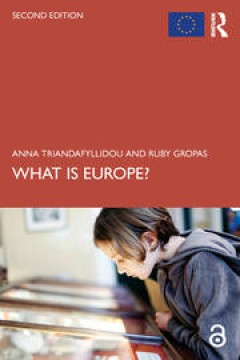
What is Europe?
This authoritative yet accessible introduction to understanding Europe today moves beyond accounts of European integration to provide a wide-ranging and nuanced study of contemporary Europe and its historical development. This fully updated edition adds material on recent developments, such as Brexit and the migrant and Eurozone crises. The concept of Europe is instilled with a plethora of s…
- Edition
- -
- ISBN/ISSN
- 9781003278375
- Collation
- 278 p.
- Series Title
- -
- Call Number
- 940.56 WHA A

Religion and Governance in England’s Emerging Colonial Empire, 1601–1698
This open access book explores the role of religion in England's overseas companies and the formation of English governmental identity abroad in the seventeenth century. Drawing on research into the Virginia, East India, Massachusetts Bay, Plymouth, New England and Levant Companies, it offers a comparative global assessment of the inextricable links between the formation of English overseas gov…
- Edition
- -
- ISBN/ISSN
- 9783030701314
- Collation
- xi, 292 p.
- Series Title
- -
- Call Number
- 909.097124106 REL H
 Computer Science, Information & General Works
Computer Science, Information & General Works  Philosophy & Psychology
Philosophy & Psychology  Religion
Religion  Social Sciences
Social Sciences  Language
Language  Pure Science
Pure Science  Applied Sciences
Applied Sciences  Art & Recreation
Art & Recreation  Literature
Literature  History & Geography
History & Geography